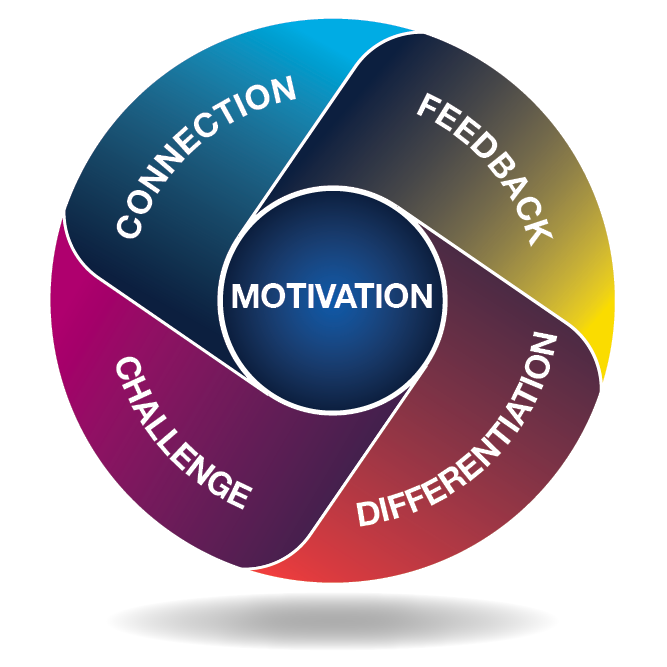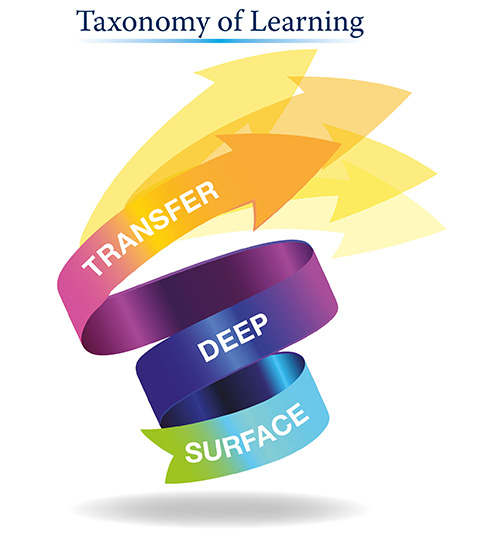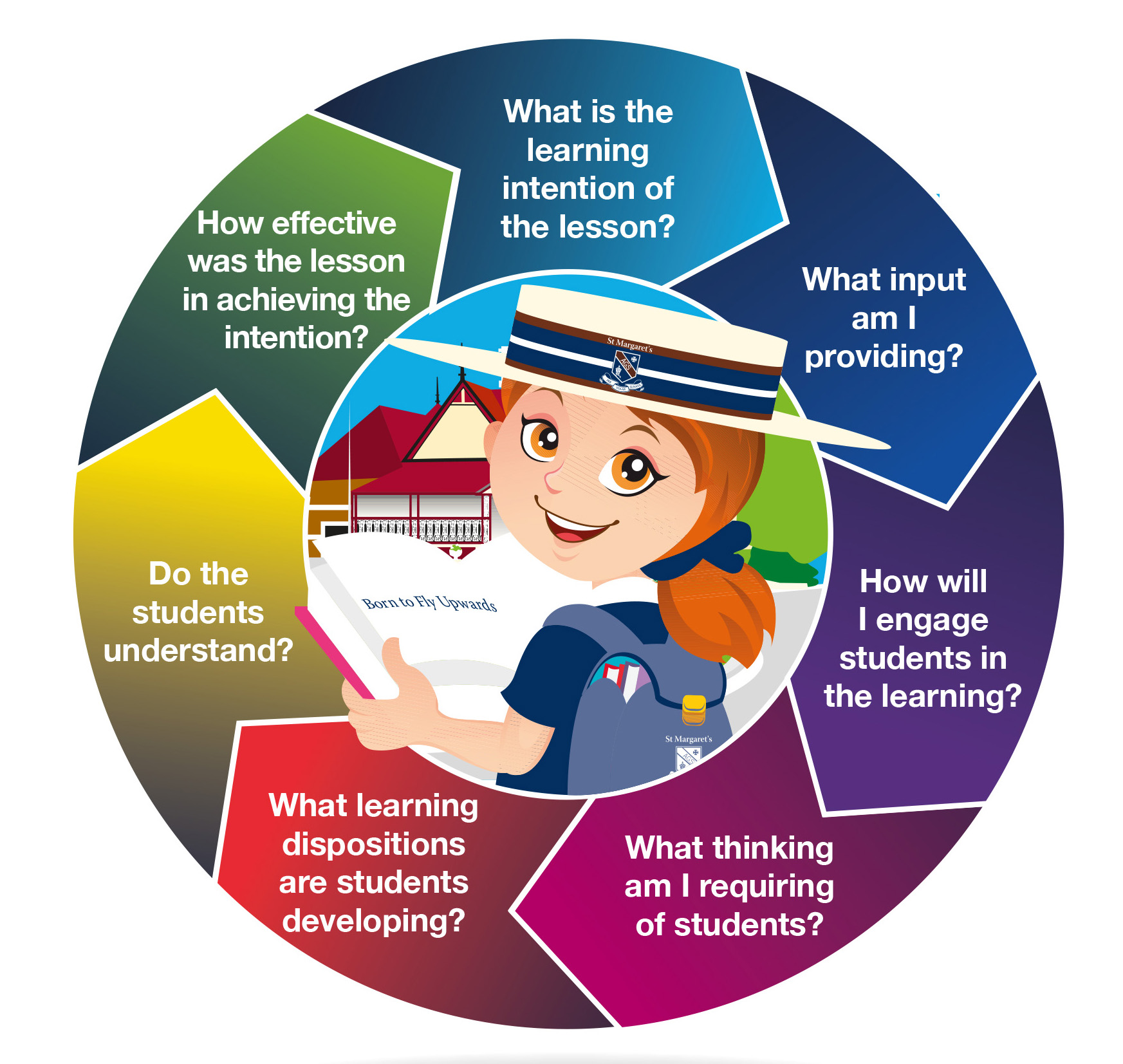Educators at St Margaret's are committed to enabling students to engage in quality learning in a culture of high expectation. We aim to develop our learners' capacities to transfer their understandings to new and unfamiliar contexts. Students are able to apply the concepts and skills explored and developed in classrooms to a range of diverse situations. The factors we have identified as being fundamental to good learning are articulated through our own Framework of Quality Teaching and Learning. They can be categorised in terms of the learning environment, the learning process and the pedagogy that links the two. When these three dimensions are considered with a view to fostering high quality student and teacher engagement then deep learning is the outcome.
At St Margaret’s we believe that the best learning environments are characterised by five key pillars: connection, differentiation, motivation, challenge and feedback. These five pillars form the foundation of pedagogical practice, inform curriculum development and shape the thinking that underpins educational leadership at the school. Together they create a framework that enables the provision of optimal learning experiences through thoughtful pedagogy and a systematic, transparent approach to deep and sustained learning.

St Margaret’s aims to provide students with an understanding of the learning process and how it feels. Our taxonomy of learning articulates three stages as being central to the learning process - surface, deep and deeper. Categorising learning in this way allows us to engage students in a discussion of different types of thinking with a view to pushing them towards metacognitive functioning.

Teachers are intentional about the approach they use to facilitate the learning of students within their classrooms. While it is a given that flexibility is required in teaching and learning, there are a number of constants that need to be specifically addressed in planning for deep and sustained learning. These have been articulated as a set of seven questions (see below) that are relevant to the planning and reflection of learning experiences on a lesson-by-lesson level.

To ensure that learning at St Margaret's is a dynamic and continually improving process, teachers are encouraged to reflect upon their pedagogy on a regular basis. The questions are represented as an ongoing cycle of planning and reflection for student-focused learning.